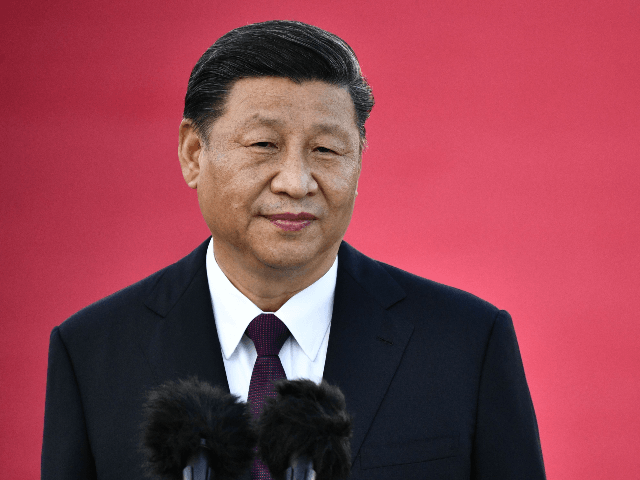Chinese state media on Friday denounced the U.S. State Department for advising against travel to China, calling it an “overreaction which would greatly hurt global tourism and hinder people-to-people exchanges.”
The United States increased its alert status again after the Chinese editorials were published, denying entry to all foreigners who have visited China within the last 14 days and implementing a rare quarantine order for some Americans returning from China.
The State Department increased its advisory level against travel to China after the World Health Organization (WHO) issued a rare global health emergency warning over the Wuhan virus. The State Department’s Level 4 advisory cited the WHO declaration, along with a warning from the U.S. Centers for Disease Control (CDC) covering all of China.
“The main reason for this declaration is not because of what is happening in China, but because of what is happening in other countries. Our greatest concern is the potential for the virus to spread to countries with weaker health systems, and which are ill-prepared to deal with it,” declared WHO Director-General Tedros Adhanom Ghebreyesus, who met with Chinese dictator Xi Jinping earlier in the week and praised China’s response to the outbreak.
“We would have seen many more cases outside China by now – and probably deaths – if it were not for the government’s efforts,” Tedros said.
Chinese state media leaned heavily on praise from WHO for China’s handling of the coronavirus in its criticism of the State Department advisory. For example, the Global Times noted that WHO did not recommend “other countries impose travel and trade restrictions on China.”
It went on to threaten dire economic consequences for the United States and other countries that follow its example:
Imposing restrictions on personal exchanges between the US and China would significantly weigh on US interests in China, considering the huge presence of American companies in China, Li Haidong, a professor at the Institute of International Relations of the China Foreign Affairs University, told the Global Times.
“It may also trigger a humanitarian crisis, as American citizens have married Chinese people, and if they are forced to leave, many families would be separated,” Li said.
Many US companies are becoming increasingly entrenched in China, including major US-listed firms such as Tesla, Starbucks, Apple and Boeing, therefore restricting personnel exchanges between China and the US would also have an impact on the US stock market, analysts noted.
The Communist Party paper claimed “experts” are advising other countries “not to follow the U.S. unilateral move.”
“They suggested the international community believe in China and work together with China to combat the novel coronavirus and safeguard global health security,” the Global Times said of these “experts.”
Another Global Times editorial on Friday cited “analysts,” all of them Chinese, who said there was no need to “overreact” to the WHO global health warning or “interpret the news as a hostile attitude toward China from the global community.”
This editorial stressed at length that WHO’s health alert includes only “non-binding” and “temporary” recommendations and does not call for “measures that unnecessarily interfere with international travel and trade.”
“The PHEIC label could frighten contracting countries to the point that they could disobey WHO recommendations and impose more stringent limits on travel and trade with the country where the virus originated, which would create significant economic losses,” the Global Times fretted, choosing an interesting turn of phrase by accusing other countries of “disobeying” non-binding and temporary advice from the World Health Organization.
In truth, countries around the world were banning or limiting travel to either the Wuhan region or the entire nation of China before the U.S. issued its travel advisory. Even Hong Kong, whose government is controlled by Beijing, shut down rail service to China and limited air travel this week.
On Friday, Singapore banned entry by anyone who has visited mainland China within the last two weeks, the period during which the Wuhan virus can lurk inside a human host without causing symptoms of illness. Singapore announced that it will not issue visas or work permits to Chinese nationals until the virus epidemic has been controlled.
In addition to national and local government bans on China travel, many airlines around the world are halting flight operations to China, including U.S. carriers Delta and American Airlines. The American Airlines pilot union had previously sued the company for failing to halt service to China.
On Friday afternoon, U.S. Secretary of Health and Human Services Alex Azar declared a public health emergency over the coronavirus. He announced a temporary ban on foreign nationals who have visited China during the 14-day period in which the Wuhan virus can inhabit humans without causing symptoms of disease. He also ordered a quarantine of 195 U.S. citizens recently recovered from Wuhan, the first such quarantine order issued by the U.S. government in over 50 years.

COMMENTS
Please let us know if you're having issues with commenting.